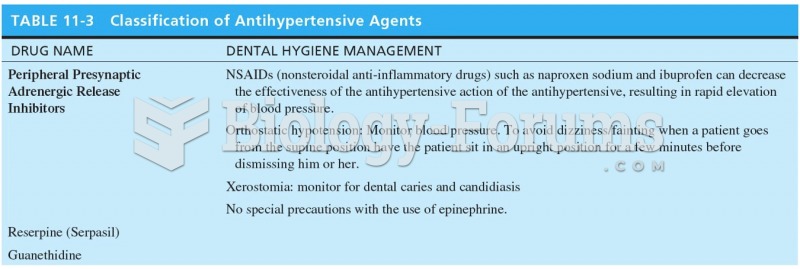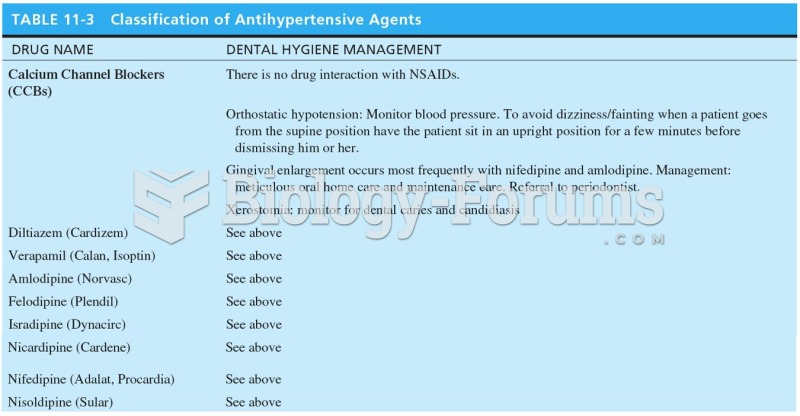|
|
|
Thyroid conditions may make getting pregnant impossible.
Giardia is one of the most common intestinal parasites worldwide, and infects up to 20% of the world population, mostly in poorer countries with inadequate sanitation. Infections are most common in children, though chronic Giardia is more common in adults.
Most strokes are caused when blood clots move to a blood vessel in the brain and block blood flow to that area. Thrombolytic therapy can be used to dissolve the clot quickly. If given within 3 hours of the first stroke symptoms, this therapy can help limit stroke damage and disability.
About 100 new prescription or over-the-counter drugs come into the U.S. market every year.
The average office desk has 400 times more bacteria on it than a toilet.







